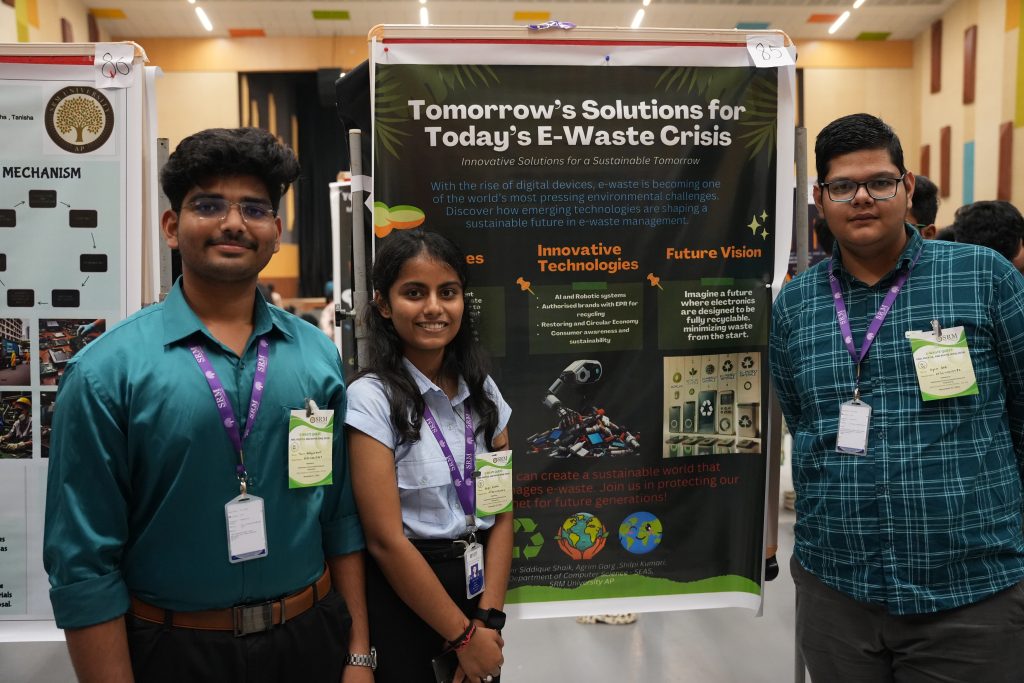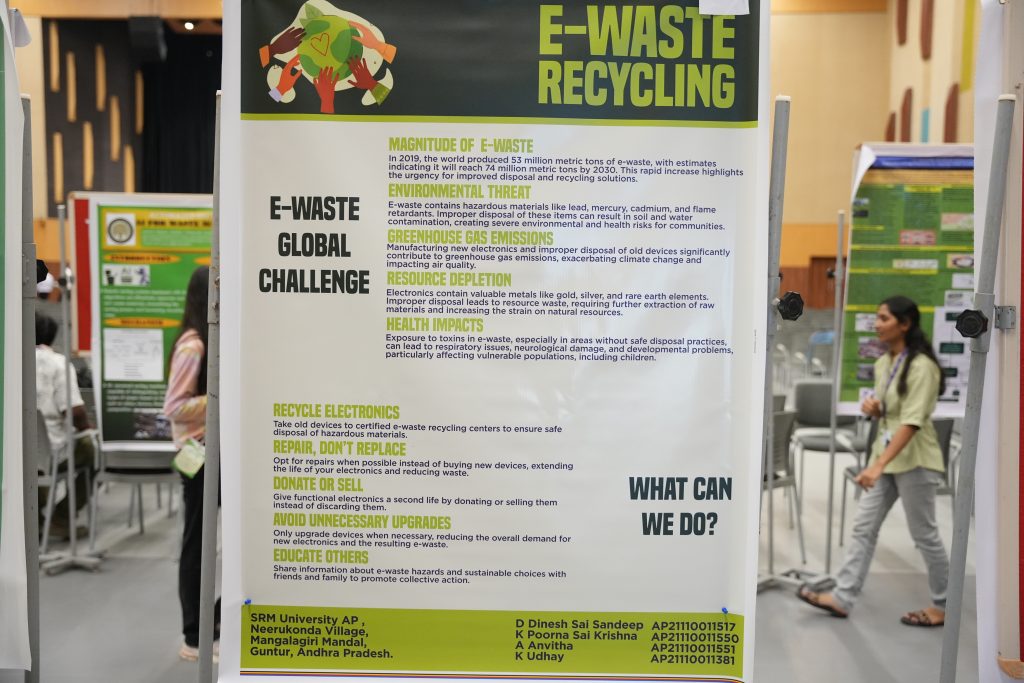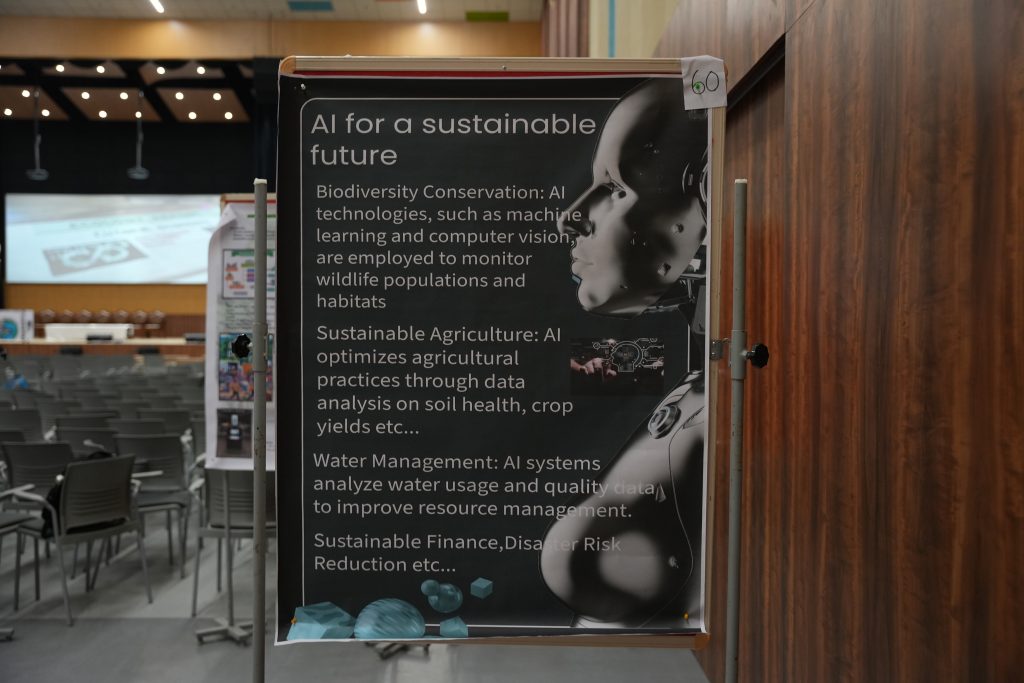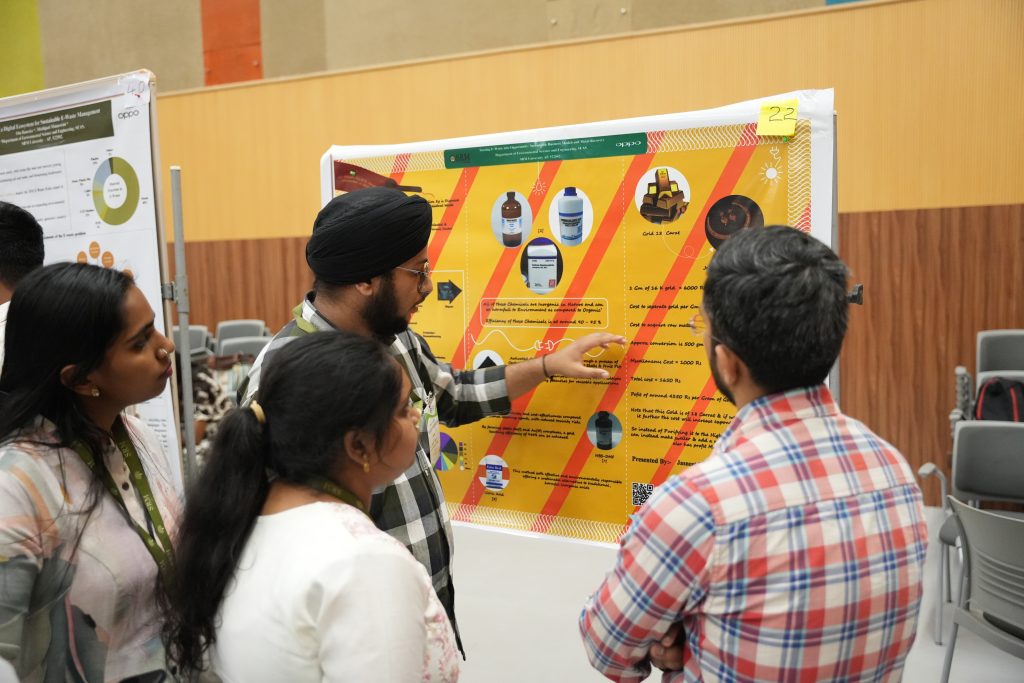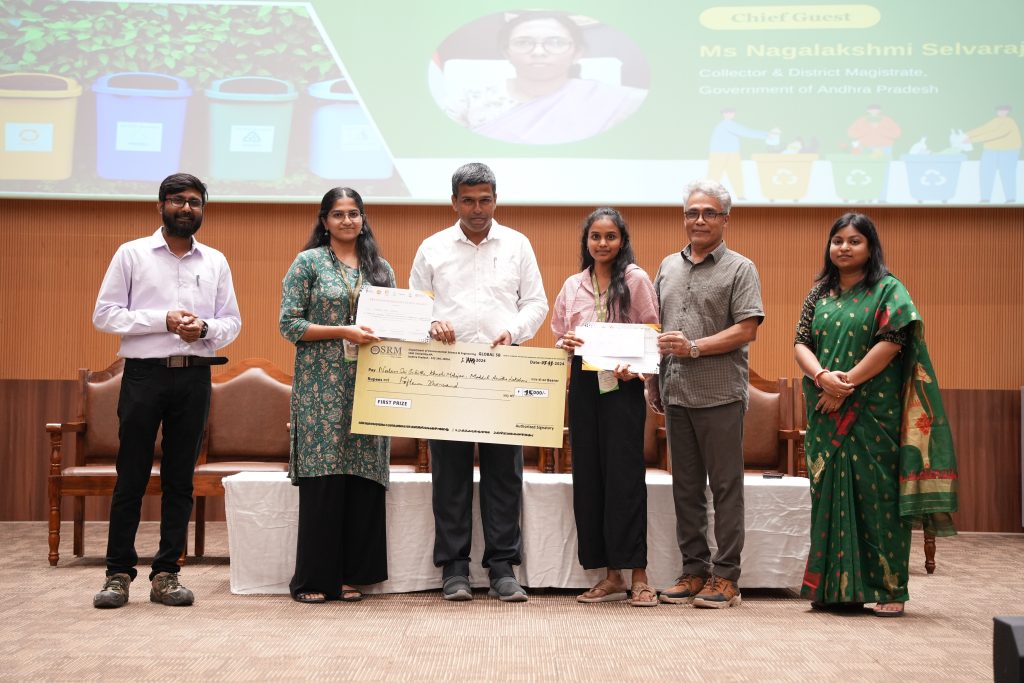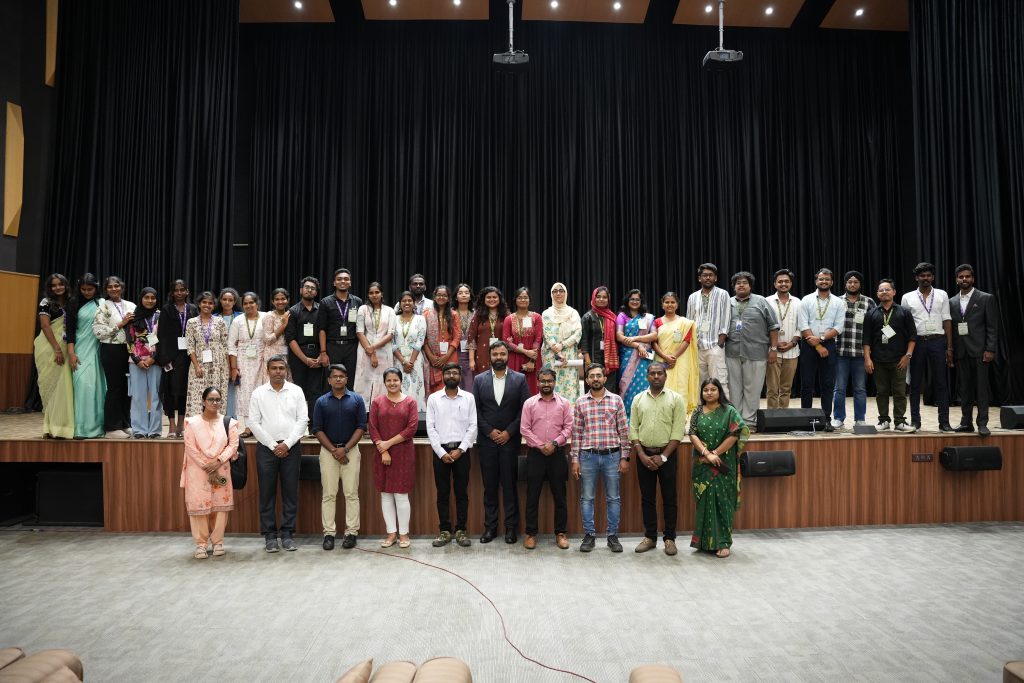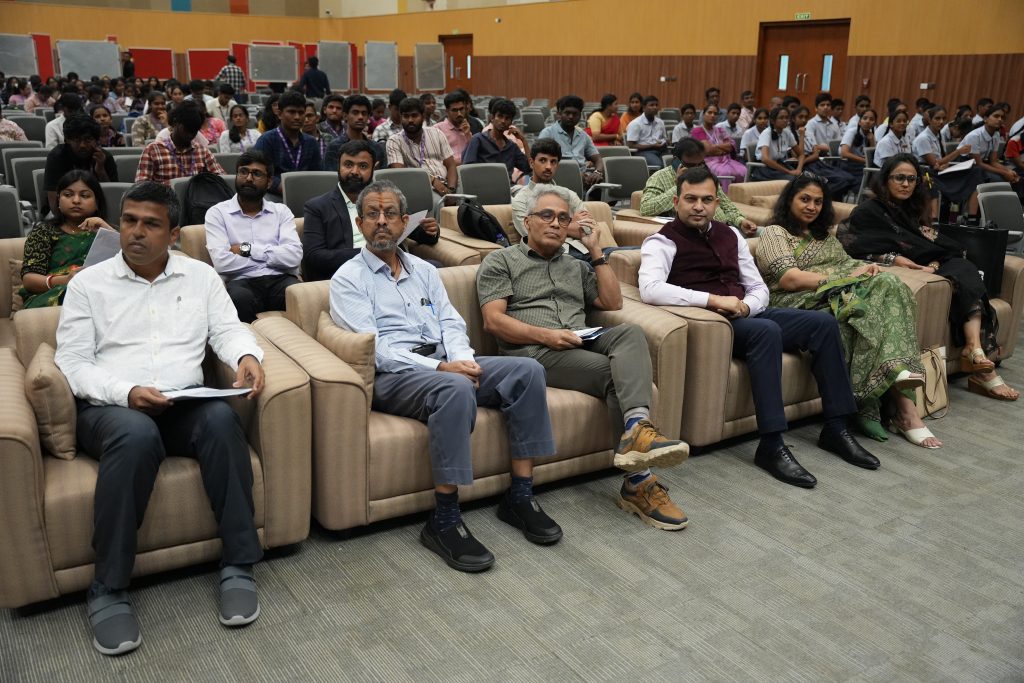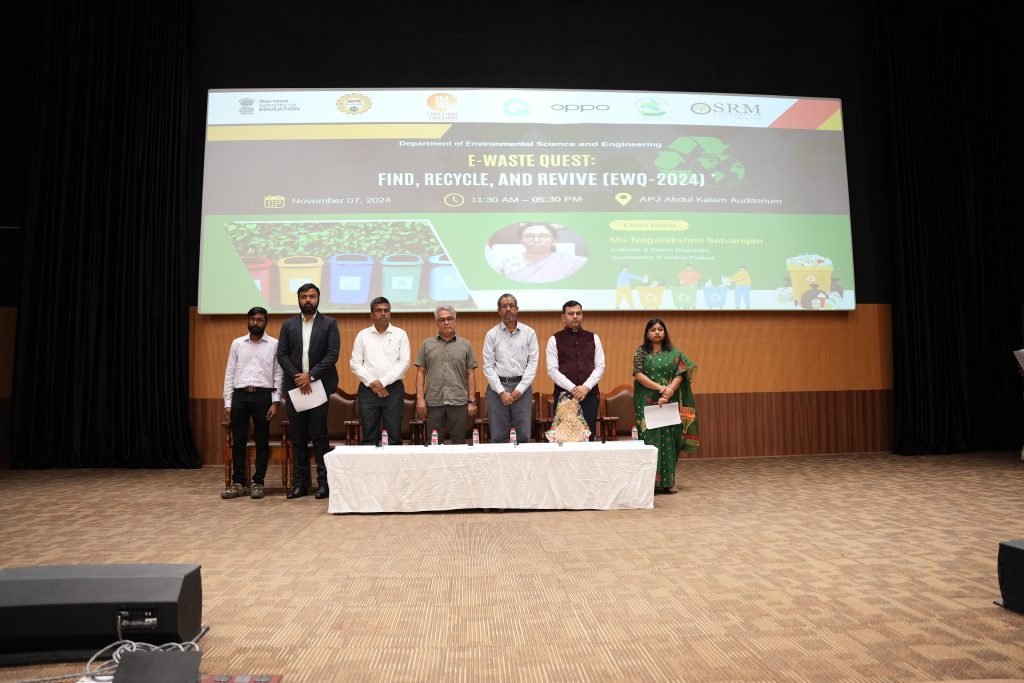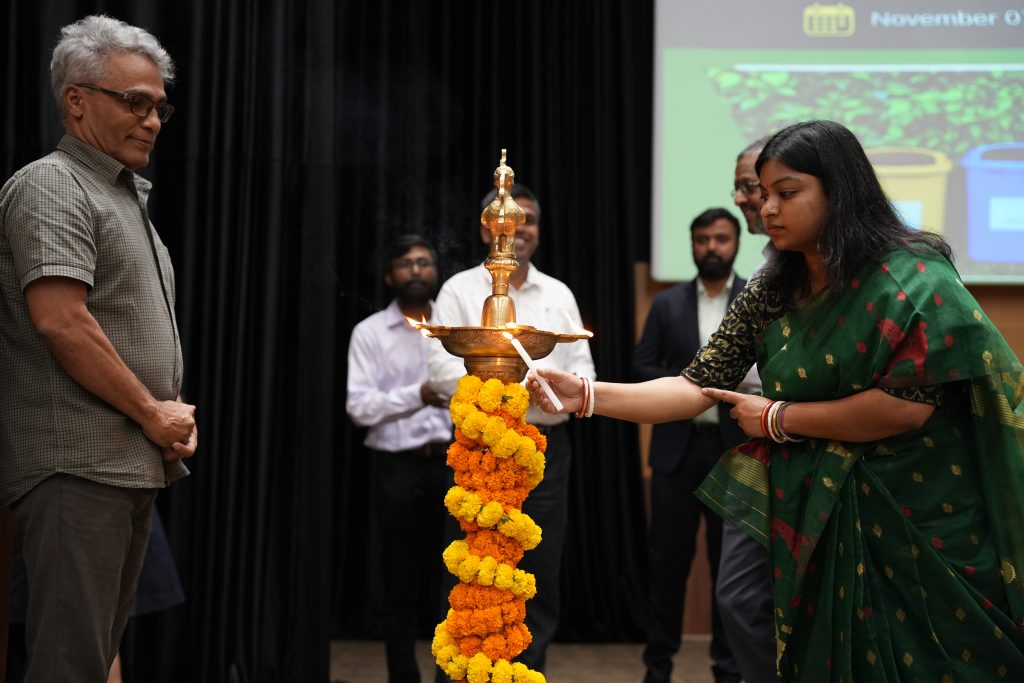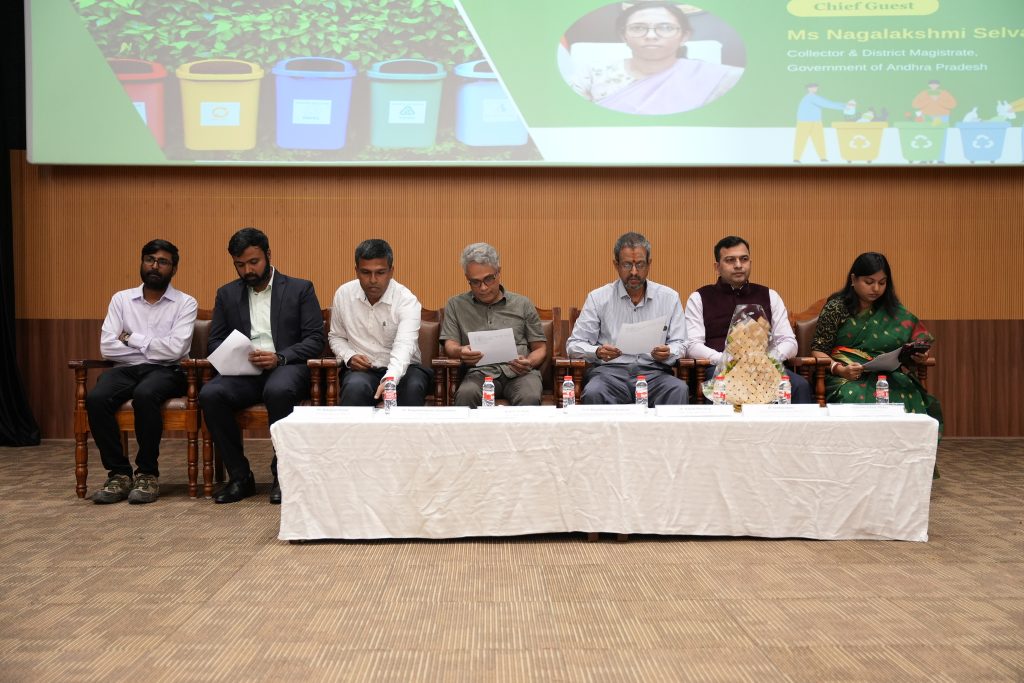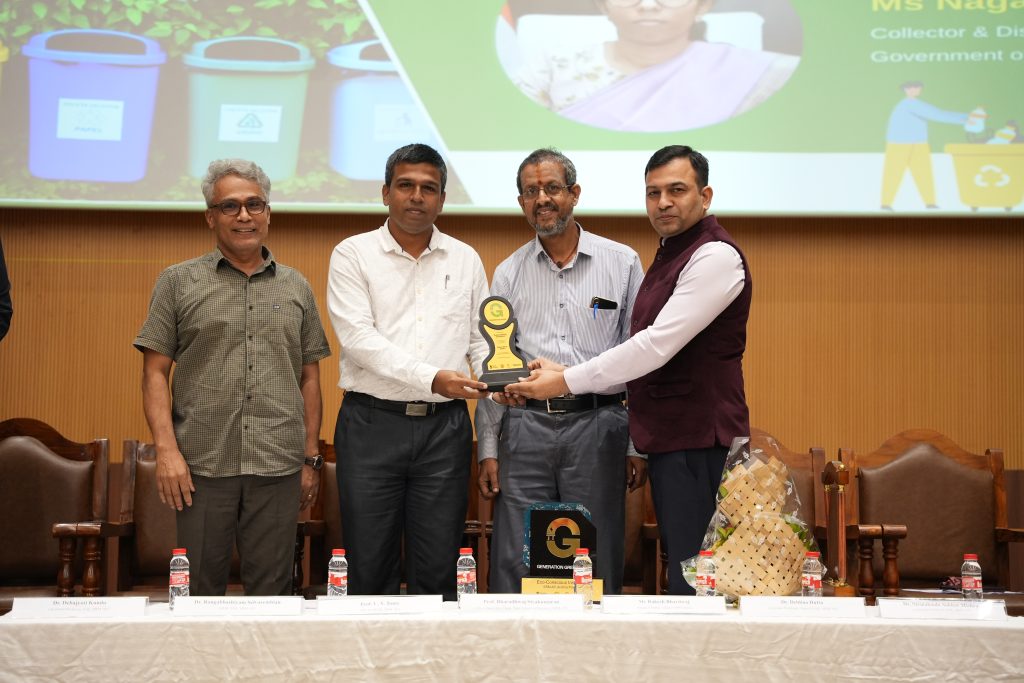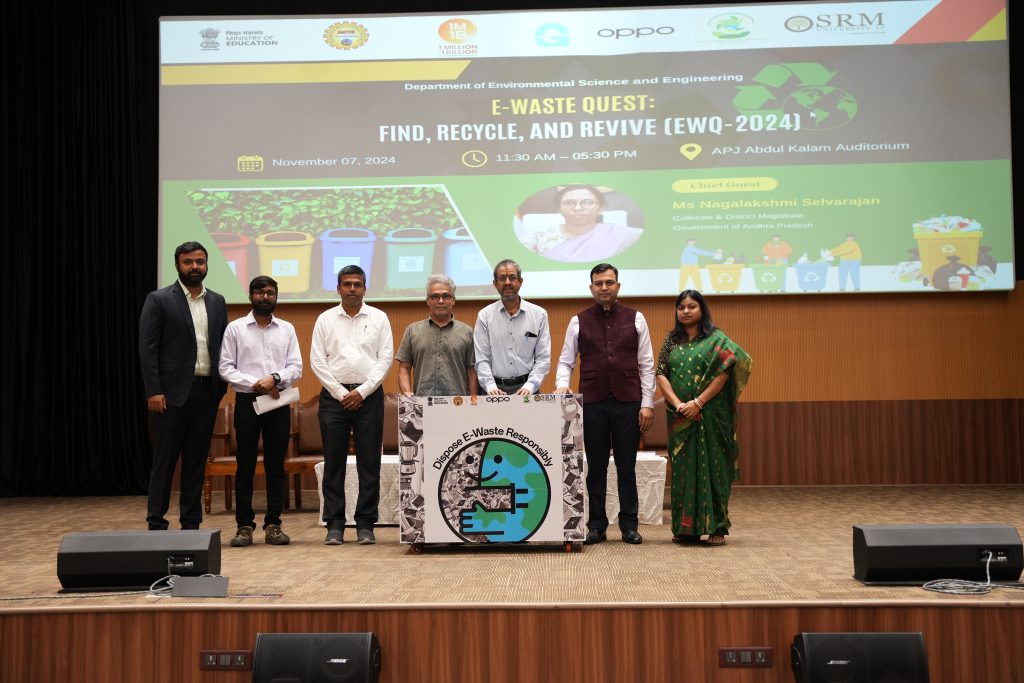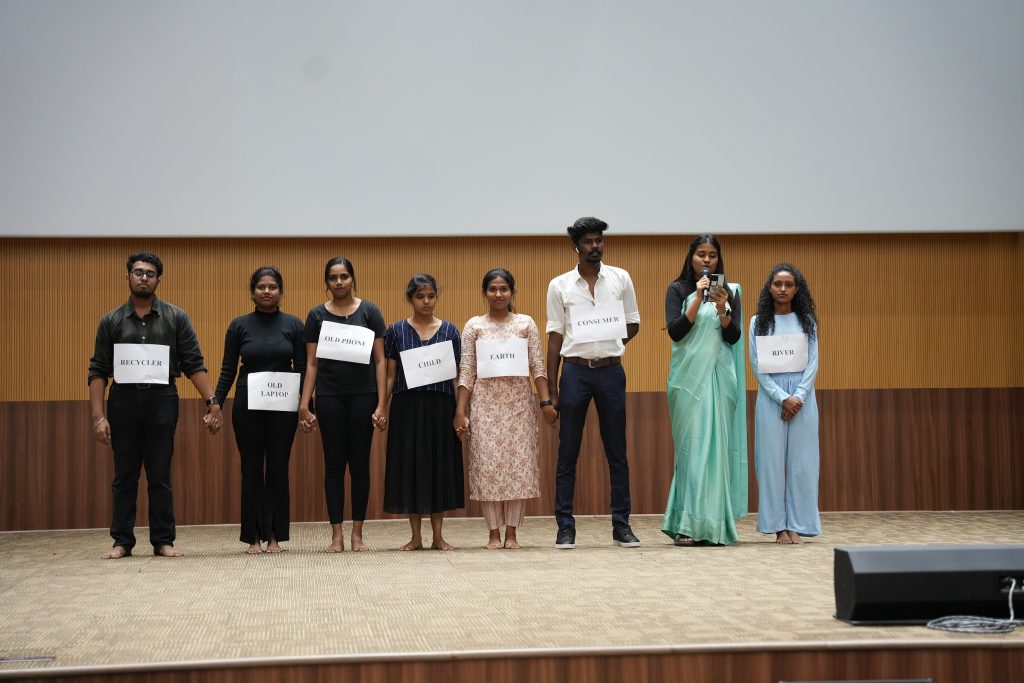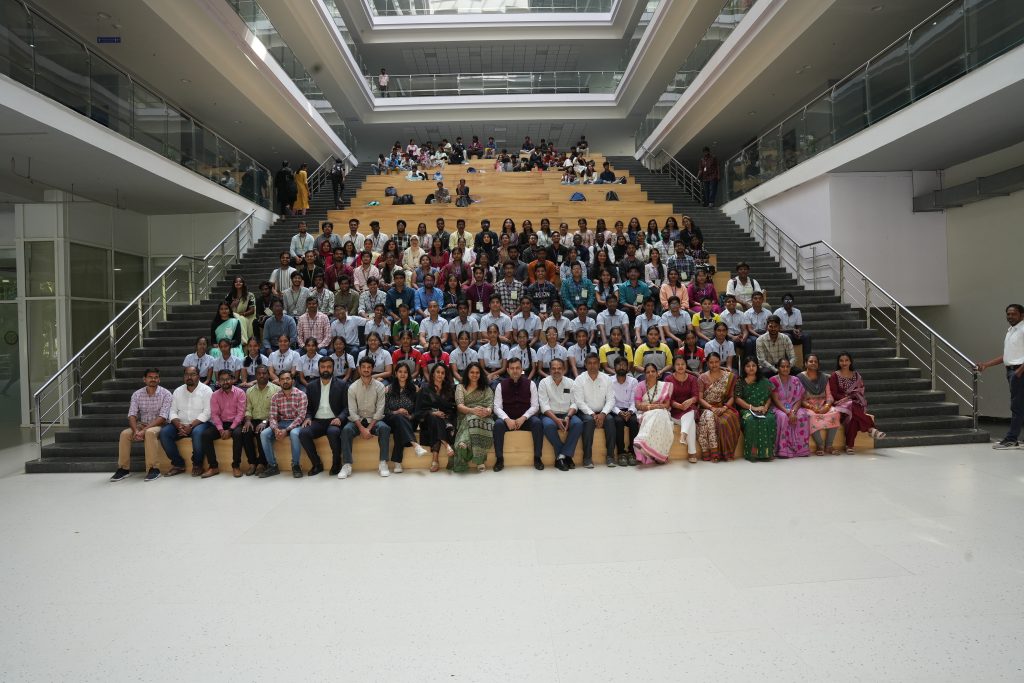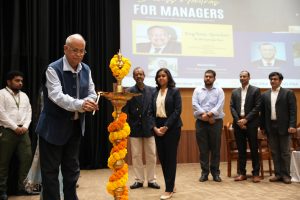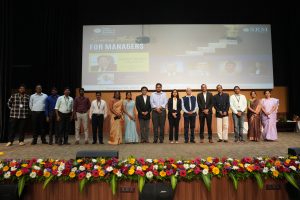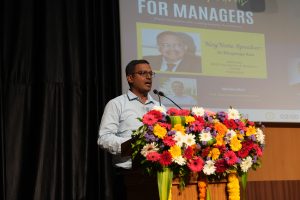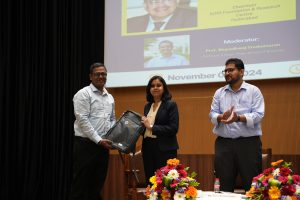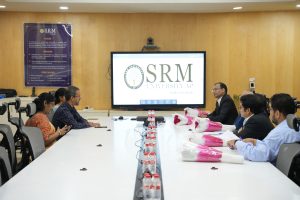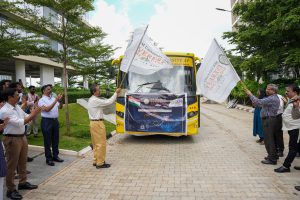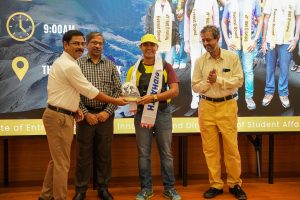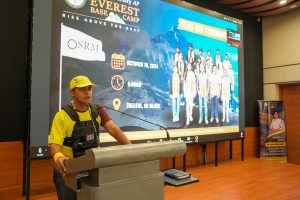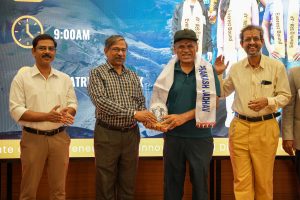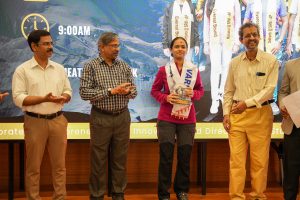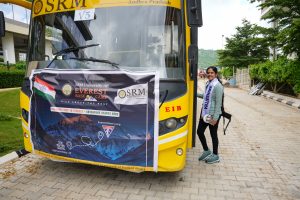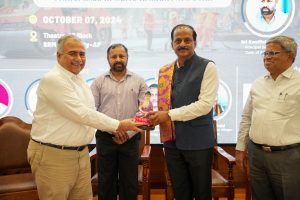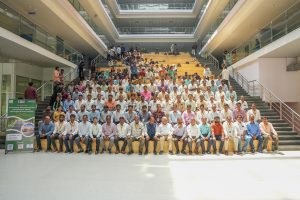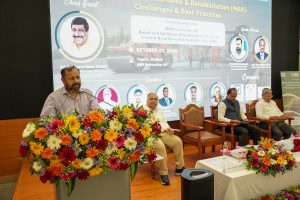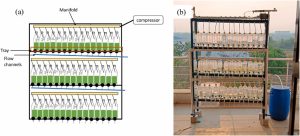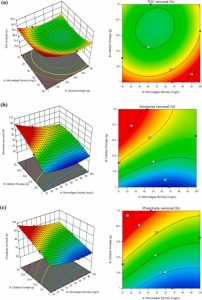Navigating the Startup Landscape
A Tech Talk was jointly organised by the Paari School of Business and the Directorate of CR & CS. It gave budding entrepreneurs of SRM AP a comprehensive view of building and scaling startups, with practical guidance on MVP development, funding paths, and team expansion through structured hiring practices.
The Talk featuring Aravind Subash, Lead – Talent Acquisition at Increff, as the guest speaker, included engaging exercises such as conducting Extensive Research on Bootstrap Companies in India and Designing a Recruitment Flowchart, which helped students understand the various nuances of being an entrepreneur.
Mr Aravind also shared inputs on investment strategies, highlighting contributions from notable investors such as Kunal Shah (founder of CRED) and Binny Bansal (co-founder of Flipkart).
The insights shared were valuable for young students looking to start, scale, or fund a business in the dynamic startup ecosystem.
- Published in Departmental News, News, Paari Current Happenings
SRM AP Joins OPPO India in its Clarion Call against E-Waste
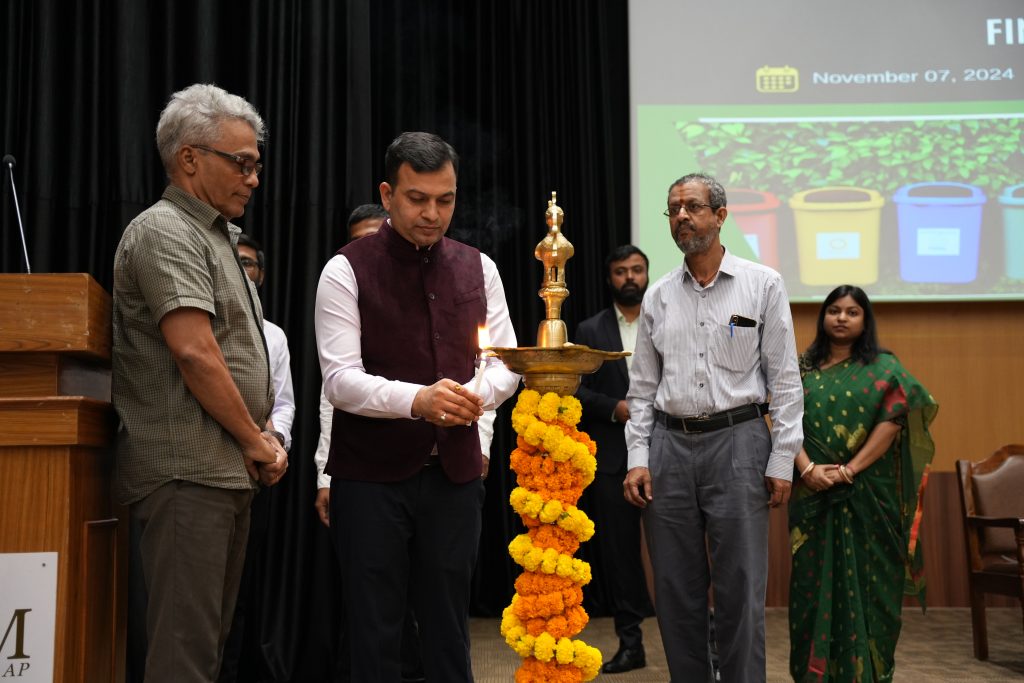 SRM University-AP, in collaboration with OPPO India and the All-India Council for Technical Education (AICTE), is partnering to support “Generation Green”—a national-level initiative aimed at empowering youth to become advocates of sustainability through green skills and actionable commitments. The first phase of the campaign saw AICTE and OPPO India partner with 1M1B to promote sustainable practices among youth by offering green internships to students across India. Launched on July 08, 2024, by AICTE Chairman Prof. T G Sitharam, in the presence of Dr Buddha Chandrasekhar, CCO, AICTE, over 9,000 students from more than 1,400 institutions applied to join the noble venture.
SRM University-AP, in collaboration with OPPO India and the All-India Council for Technical Education (AICTE), is partnering to support “Generation Green”—a national-level initiative aimed at empowering youth to become advocates of sustainability through green skills and actionable commitments. The first phase of the campaign saw AICTE and OPPO India partner with 1M1B to promote sustainable practices among youth by offering green internships to students across India. Launched on July 08, 2024, by AICTE Chairman Prof. T G Sitharam, in the presence of Dr Buddha Chandrasekhar, CCO, AICTE, over 9,000 students from more than 1,400 institutions applied to join the noble venture.
The second phase of the ‘Generation Green’ campaign witnessed SRM AP’s partnership with OPPO and AICTE for educating youngsters about the need for responsible electronic waste management. In alignment with this initiative, the varsity conducted E-Waste Quest 2024, wherein it enlightened students on the issue of waste management of discarded electronic items such as mobile phones, chargers, batteries, and wires. With over 400,000 pledges to date, the campaign now targets one million youth engagements by the end of 2024 to create a lasting impact on e-waste management and environmental preservation. On the occasion OPPO India awarded the SRM University with the title of Eco-Conscious Institution, reflecting the varsity’s commitment to sustainability.
Pro-Chancellor Dr P Sathyanarayanan and Vice Chancellor Prof. Manoj K Arora congratulated the Department of Environmental Science and Engineering for their dedication and commitment to this cause, while Prof. Bharadhwaj Sivakumaran, Dean-Paari School of Business and the officiating Vice Chancellor, emphasised, “Initiatives like the Generation Green Campaign illustrate how small, purposeful actions can catalyse significant change toward a sustainable future.”
Prof. C V Tomy, Dean of the School of Engineering and Sciences, addressed the gathering with an inspiring call to action, stating that every school must have an e-waste collection centre. He stated, “This effort not only promotes responsible disposal but also opens doors to entrepreneurial opportunities, instilling a mindset of sustainability and innovation among students.”
During the launch of the E-Waste Quest 2024, Mr Rakesh Bhardwaj from OPPO India stated, “Today marks a pivotal moment in our collective commitment to a sustainable future. This initiative encourages our youth to take ownership of their role in environmental stewardship.” Dr Rangabhashiyam Selvasembian, Associate Professor and Head-Department of Environmental Science and Engineering, stated, “A motivated and informed generation has the power to reshape our planet. If we do not take responsibility for its protection, no one else will.”
Dr Vinayak Kalluri, Dean-Academic Affairs, implored the youth to fight together in this crusade to save Mother Nature from the horrors of e-waste, noting, “The transition for a sustainable future arises from engaging in small acts of sustainability that result in big transformations.” Additionally, Collector and District Magistrate, Ms Nagalakshmi Selvarajan shared a meaningful message on the importance of community involvement. The E-Waste Quest 2024 served as a powerful reminder that collective efforts help shape a greener future where progress and sustainability go hand in hand.
- Published in Departmental News, ENVS News, News
Understanding the Impact of Sundarbans Mangroves on Global Oceanic Carbon Budgets
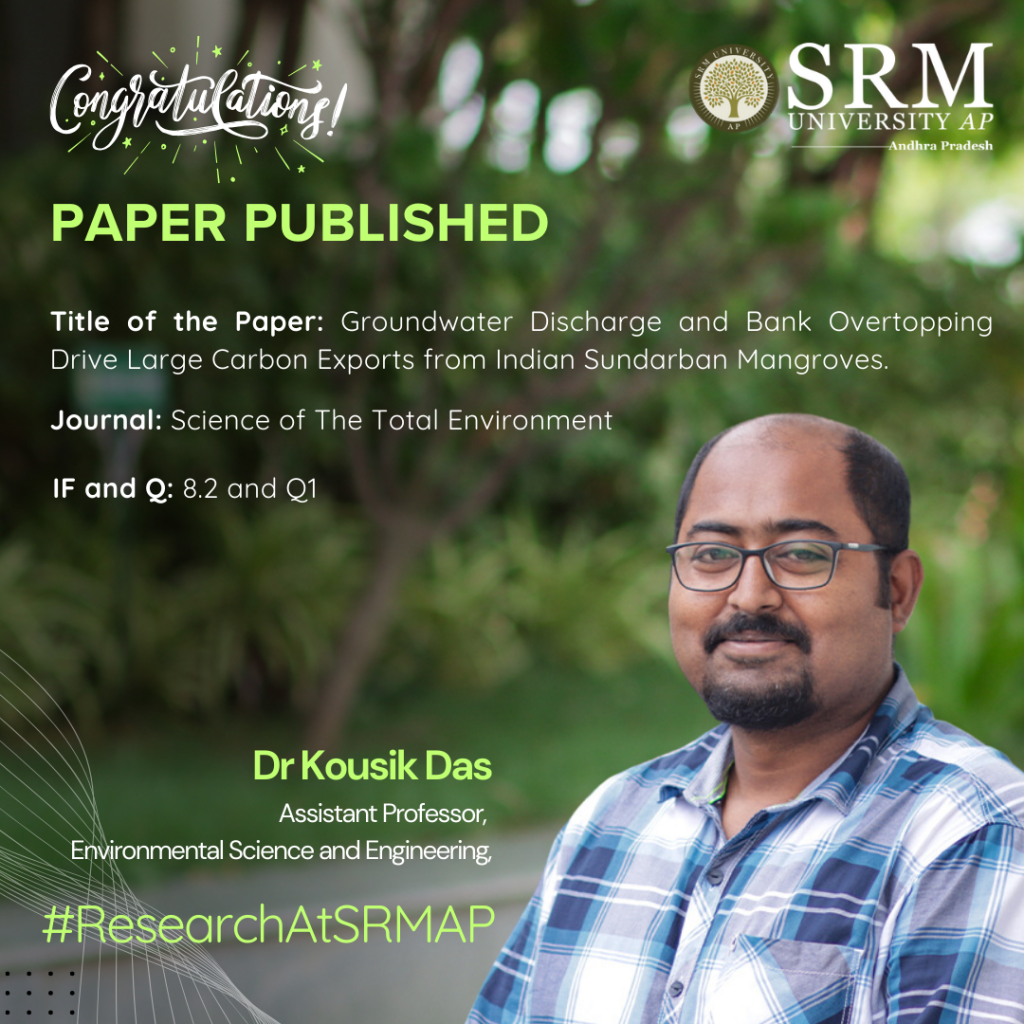
The Sundarbans represent the largest mangrove system on Earth, covering >10,000 km2. These mangroves can export a vast amount of aquatic carbon that can be potentially sequestered for millennia. Dr Kousik Das, Assistant Professor at the Department of Environmental Science and Engineering, collaborates with Southern Cross University, Australia and IIT Kharagpur to conduct breakthrough research to analyse and estimate the carbon flux between the Sunderbans and the Bay of Bengal. He has published a research paper titled “Groundwater discharge and bank overtopping drive large carbon exports from Indian Sundarban mangroves” in the Q1 journal Science of The Total Environment, having an impact factor of 8.2.
Abstract
We estimate porewater-driven carbon exchange between the Sundarbans and the Bay of Bengal using high-resolution time series and a radon groundwater mass balance approach spanning a neap-spring tidal cycle. Submarine groundwater discharge (SGD) increased from neap to spring tides by 352 % up to a maximum of 65.6 cm d−1 largely driven by creek bank overtopping after the mid-tide. Exports of dissolved organic and inorganic carbon and alkalinity doubled between neap and spring, likely due to the ‘first flush’ of older porewater in the mangrove flats. Groundwater discharge was a significant driver of the net carbon export, contributing up to 86.7 % of DIC and 74.0 % of alkalinity during the spring tide while contributing a lower proportion of DOC (4 %–23 %). If these results are representative of the Sundarbans more broadly, carbon fluxes from the Sundarbans would be more than an order of magnitude higher than some of the world’s largest rivers on an areal basis, highlighting the importance of Sundarbans mangroves to global oceanic carbon budgets.
Practical Implementation/Social Implications of the Research
This study shows the global importance of the Sundarbans mangrove system, with significant dissolved inorganic carbon and total alkalinity fluxes to the Bay of Bengal. It also shows that mangrove SGD is an important driver of dissolved inorganic carbon, dissolved inorganic carbon (DIC) and total alkalinity (TAlk) exports and that bank overtopping during mid and spring tides drives a ‘first flush’ of carbon from groundwater. When carbon fluxes from the study site were upscaled to the entire inundated area of the Sundarbans, DIC and TAlk exports were smaller than some of the world’s largest rivers, however when adjusted to the catchment size (assuming the Sundarbans mangrove catchment area is the extent of the mangroves; 10,200 km2), the areal carbon fluxes from the mangroves are more than an order of magnitude higher than these river systems
Dr Das aims to continue his research and further explore the large flux of carbon export due to tropical cyclones from the Indian Sundarbans to the Bay of Bengal.
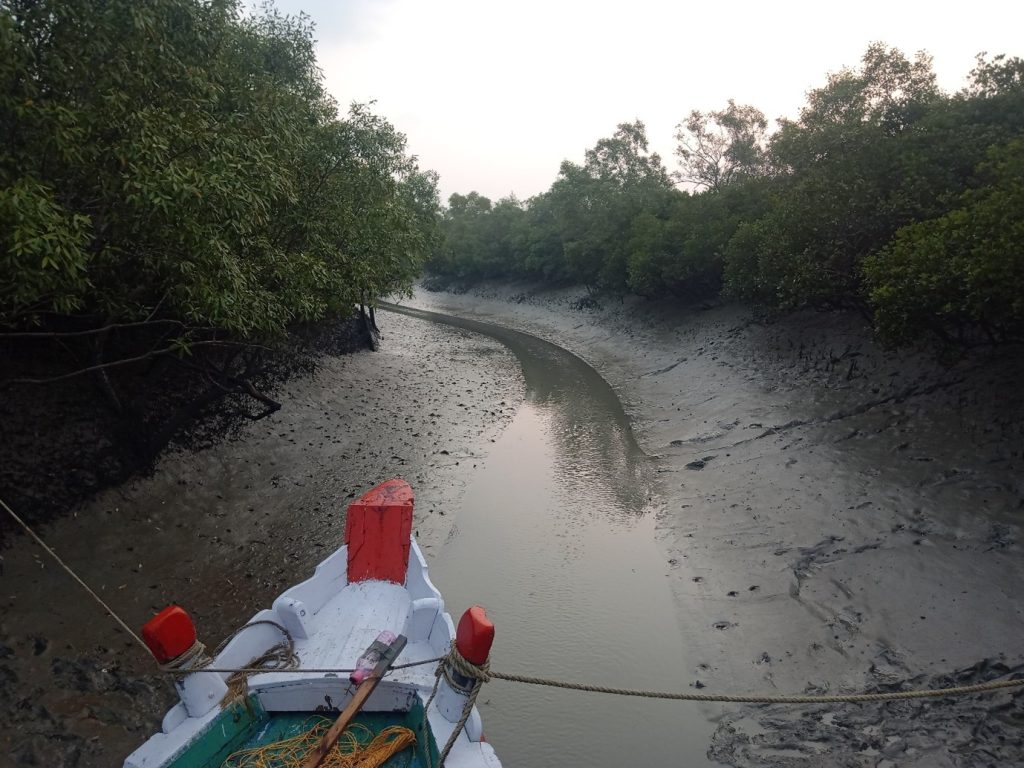
- Published in Departmental News, ENVS News, News, Research News
Industry Experts Inspire Future Leaders at the 2nd Success Mantra for Managers
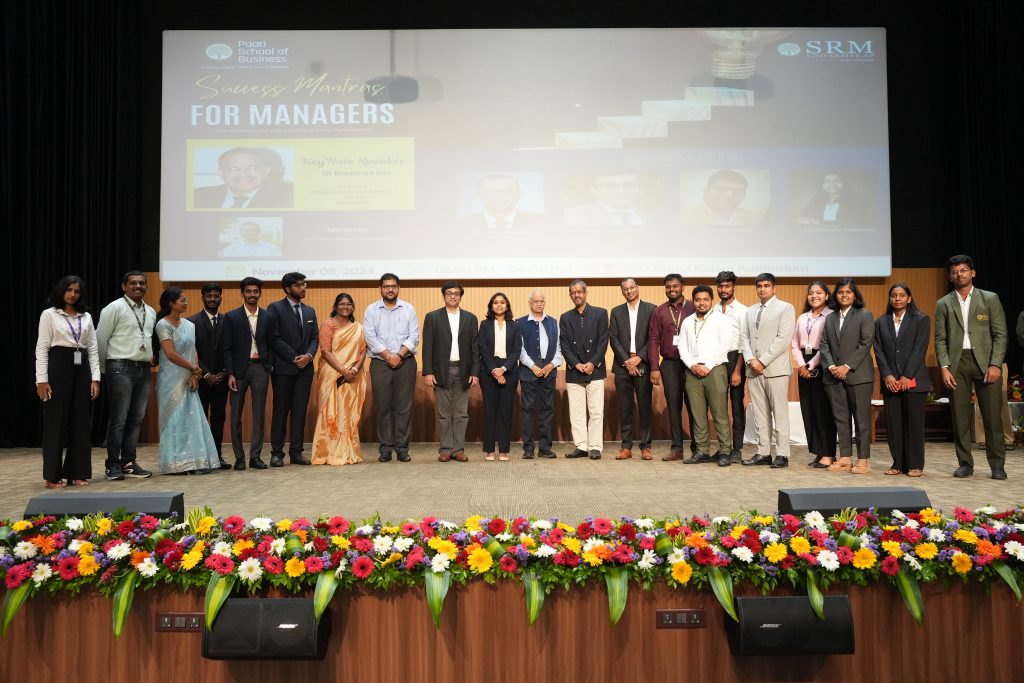
The Department of Management at the Paari School of Business conducted the second edition of its flagship event, “Success Mantra for Managers” (SMM), on November 08, 2024, uniting industry leaders to provide valuable insights, experiences, and professional guidance to students and faculty.
The event, moderated by Prof. Bharadwaj Sivakumar, Dean – Paari School of Business and Officiating Vice Chancellor, featured a distinguished panel that addressed the evolving landscape of management. Panellists shared their unique perspectives on effective leadership, motivation, and the importance of new-age skills in today’s corporate environment.
Ms Srimathi Sridharan, Director-BNY Mellon, remarked,” a manager’s role extends beyond mere target achievement; it fundamentally involves inspiring a team”. She highlighted the significance of kindness in leadership, drawing inspiration from her personal experience as well as the late industrialist and philanthropist, Mr Ratan Tata.
Mr Varun Gupta, Associate Director at PepsiCo, spoke passionately on the idea of Success. He stated, “Define Your Success, Yourself,” and stressed on the necessity for managers and leaders to possess a clear vision. He articulated how a well-defined personal and professional vision can guide managers in reaching their goals while empowering their teams.
Dr Bhujanga Rao, Chairman-KIMS Foundation & Research Centre and the key-note speaker for the discussion shared insightful reflections on his experience with Dr Abdul Kalam. He noted that compassion was a standout quality of Dr Kalam’s leadership, underlining that effective leadership encompasses understanding and supporting team members on both professional and personal levels.
Mr Suresh Ponnuru, Director-Analytics & Strategy Leader at Tiger Analytics, articulated the critical role of a leader in effectively communicating their team’s work to both superiors and clients. He highlighted the importance of perseverance and the ability to seize opportunities as they arise, which are essential traits for successful management.
Additionally, Mr Vinay Mantha, MD, Corporate & Investment Bank at J P Morgan Chase, conveyed that a manager should not only celebrate successes but also embrace failures as learning opportunities. This duality, he suggested, is fundamental to continuous growth and resilience in leadership.
In response to a question about handling success and failures at work, the panellists endorsed the significance of having an alternate plan—plan B if plan A fails. They collectively asserted that leaders must take responsibility for setbacks and implement corrective actions promptly.
The discussion further emphasised the need for managers to constantly evolve and acquire new skills, aligning with the event’s core theme that today’s managerial role must balance high performance with adaptability and empathy. Panellists shared personal anecdotes that underscored the joys and challenges of the profession.
The conversation delved into the relevance of emerging skills, such as artificial intelligence and the necessity for continuous learning, all deemed critical for future managers. Despite the focus on new-age competencies, the panellists unanimously vouched for the enduring value of traditional age-old skills like networking and ability to spot opportunities.
The event aimed at presenting the students with actionable insights and reinforced the vital importance of developing a versatile skill set in preparation for their careers, equipping them to thrive in a dynamic professional landscape.
- Published in Departmental News, News, Paari Current Happenings
A Novel Method to Estimate Parameters in Complex Biochemical Systems
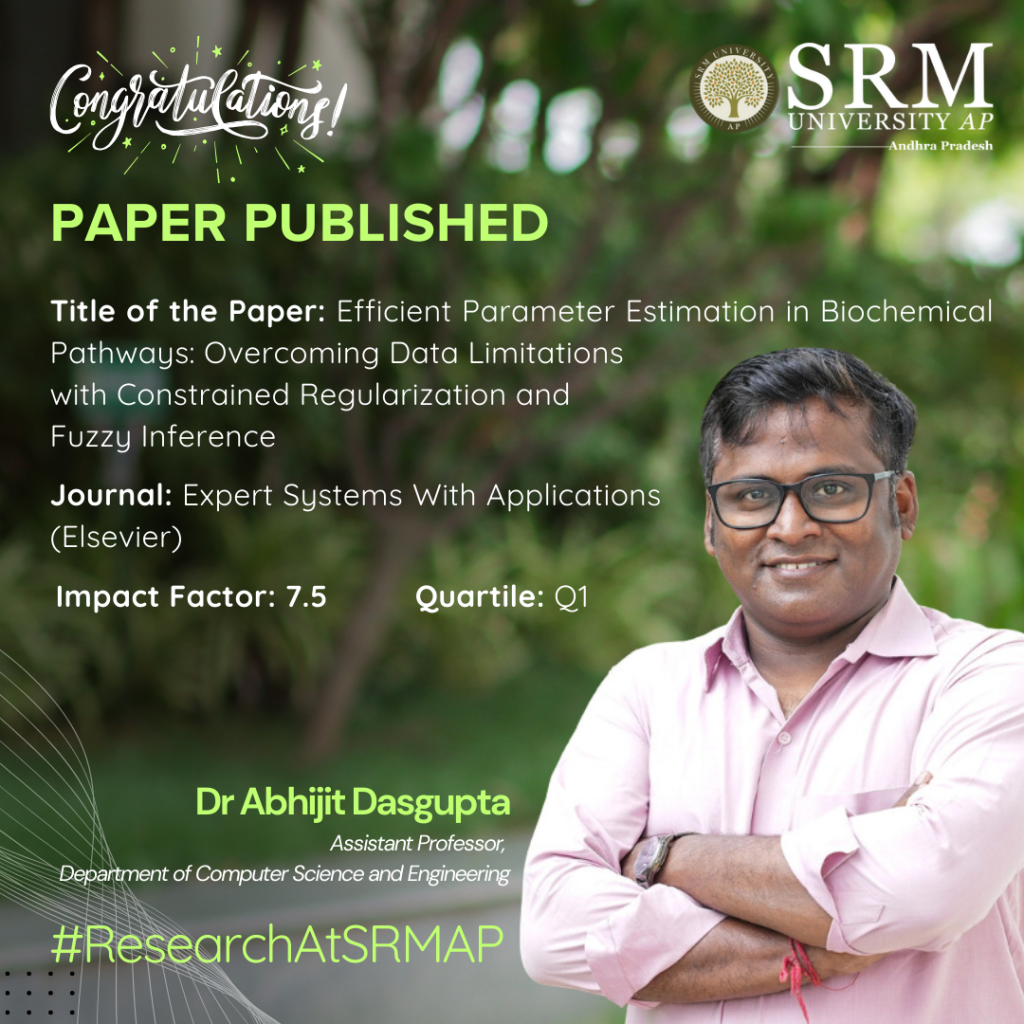
With the advent of cutting-edge technology, Dr Abhijit Dasgupta, Assistant Professor at the Department of Computer Science and Engineering, has conducted breakthrough research in understanding biochemical systems with limited data in hand. His research has been published as a paper titled “Efficient Parameter Estimation in Biochemical Pathways: Overcoming Data Limitations with Constrained Regularization and Fuzzy Inference” in the Elsevier journal Expert Systems With Applications, having an impact factor of 7.5.
Abstract
This study introduces a new method to estimate parameters in biochemical pathways without relying on experimental data. The method called the Constrained Regularized Fuzzy Inferred Extended Kalman Filter (CRFIEKF) uses fuzzy logic to estimate parameters based on known but imprecise relationships between molecules. To handle complex and unstable data, the method incorporates Tikhonov regularisation, improving accuracy and stability. CRFIEKF was tested on several pathways, including glycolysis and JAK/STAT signalling, and reliable results were obtained. This approach offers a useful tool for estimating parameters in complex biochemical systems, especially when experimental data is limited.
Explanation of the Research in Layperson’s Terms
This research is about finding a new way to predict how living cells work, especially when scientists don’t have enough data from experiments. Normally, to understand how cells function, scientists need to collect a lot of information over time, which can be costly, difficult, or even impossible.
To solve this, the researchers developed a new method that doesn’t need as much experimental data. Instead of relying on exact measurements, their method uses fuzzy logic, which is like making smart guesses based on patterns and relationships we know, even if we don’t have perfect information. They also used a technique to keep these guesses steady and reliable, even when the data is messy or incomplete.
They tested this method on different biological processes, such as how cells turn food into energy (a process called glycolysis) and how cells send signals using proteins (like in the JAK/STAT pathway). The method worked well and gave accurate results.
In simple terms, this research helps scientists predict how cells behave without needing a lot of expensive and hard-to-get data, making it easier to study the complex systems inside living organisms.
Practical Implementation/Social Implications of the Research
The practical implementation of this research lies in its ability to accurately predict how biological systems, such as cells, function without relying heavily on time-consuming and costly experimental data. This method can be applied in various fields, including drug development, personalised medicine, and agriculture, where understanding complex biological processes is crucial. For instance, pharmaceutical companies could use this technique to model how a drug will interact with different biological pathways, speeding up the drug discovery process. Similarly, it could help tailor medical treatments to individual patients by predicting how their unique biological makeup will respond to specific therapies.
The broader social impact of this research is significant. By reducing the need for extensive experimental data, this method can lower the cost and time required for scientific discoveries in healthcare and biotechnology. This could lead to faster development of new medicines, more affordable healthcare solutions, and personalised treatments that improve patient outcomes. In agriculture, this method can help optimise crop growth and resilience, contributing to food security. Overall, this research provides a pathway for more efficient and cost-effective advancements in biology, healthcare, and environmental sciences, ultimately benefiting society by improving health and sustainability.

Collaborations
1. St Jude Children’s Research Hospital, Memphis, USA
2. University of California, San Diego, USA
3. Columbia University, New York, USA
4. Nantes Université, France
5. University of North Carolina at Chapel Hill, USA
6. Institute of Himalayan Bioresource Technology, Palampur, India
7. Indian Statistical Institute, Kolkata, India
8. Aliah University, Kolkata, India
9. Michelin India Private Limited, Pune, India
10. Gitam University, Bangalore, India
Future Research Plans
Building on the foundation laid by this research, the next steps will involve expanding its applications to more complex biological systems and personalised medicine. The following outlines a future roadmap:
1. From Time-Course Data to Pathway Enrichment and Single-Cell Modeling:
The current method, which estimates parameters without relying on time-course data, can be adapted to use time-course data when available. Time-course data captures how biological processes change over time, offering valuable insights. By integrating this data, we can refine the parameter estimation and achieve a more precise pathway enrichment analysis. This approach can be particularly beneficial in single-cell studies, where understanding the variability in cellular responses within complex diseases like cancer, diabetes, or neurodegenerative disorders is crucial. Modelling these pathways at the single-cell level will enable us to capture heterogeneity within tissues and improve disease understanding.
2. Simulating Pathways to Identify Drug Targets:
Once the pathways are enriched and modelled, we can simulate these biological networks to predict how different interventions—such as drugs—might influence the system. This simulation can help identify potential drug targets, particularly those that are critical in disease progression. For instance, by manipulating the modelled pathways, we can observe how specific proteins or molecules influence the disease state, providing insights into where a drug could be most effective.
3. Predicting Drug Side Effects:
After identifying potential drug targets, the next step is to predict the side effects of these interventions. The same model can simulate unintended consequences by analysing how modifying a target impacts other connected pathways. This simulation can provide early warnings about potential side effects, reducing the risk during later stages of drug development. Understanding these off-target effects at an early stage will be crucial for designing safer drugs.
4. Predicting Drug Molecules Using Generative Adversarial Networks (GANs):
Incorporating machine learning, particularly Generative Adversarial Networks (GANs), can take this research to the next level. GANs can be trained to generate new drug molecules by learning from existing drug databases. By feeding the pathway model’s identified targets into the GAN, we can generate candidate drug molecules that are predicted to interact with these targets effectively. This approach can significantly speed up the drug discovery process by automating the design of new drug candidates tailored to specific biological pathways.

5. Integration with Omics Data for Personalized Medicine:
The future of personalised medicine relies on integrating various layers of biological data—such as genomics, transcriptomics, proteomics, and metabolomics—into a cohesive model. By integrating pathway data with these other “omics” layers, this research will facilitate a more comprehensive understanding of individual patient biology. This integration allows for tailored treatment strategies, making personalised medicine more achievable. For instance, based on an individual’s genetic makeup and biological pathways, we can predict how they will respond to specific drugs and design personalised therapies with minimal side effects.
6. Pathway-Based Drug Design and Validation:
Once potential drug molecules are identified using GANs, they can be simulated within the enriched pathways to test their efficacy in silico. These simulations will allow researchers to understand how the drug interacts with the target pathway and its downstream effects. If the simulation shows promising results, the drug candidates can be prioritised for lab testing and clinical trials. This systematic approach, from modelling to simulation, could drastically reduce the time and cost associated with traditional drug discovery processes.
Summary
This plan transforms the current research from a powerful parameter estimation technique into a comprehensive framework for personalized medicine and drug discovery. By expanding to time-course data, single-cell modeling, pathway simulation, and integrating cutting-edge AI techniques like GANs, we can predict drug molecules tailored to individual biological systems. This personalized approach not only streamlines drug discovery but also enhances the safety and effectiveness of treatments, paving the way for more efficient and precise medical interventions.
- Published in CSE NEWS, Departmental News, News, Research News
Environmental Sustainability in Corporate Business Firms of Ghana
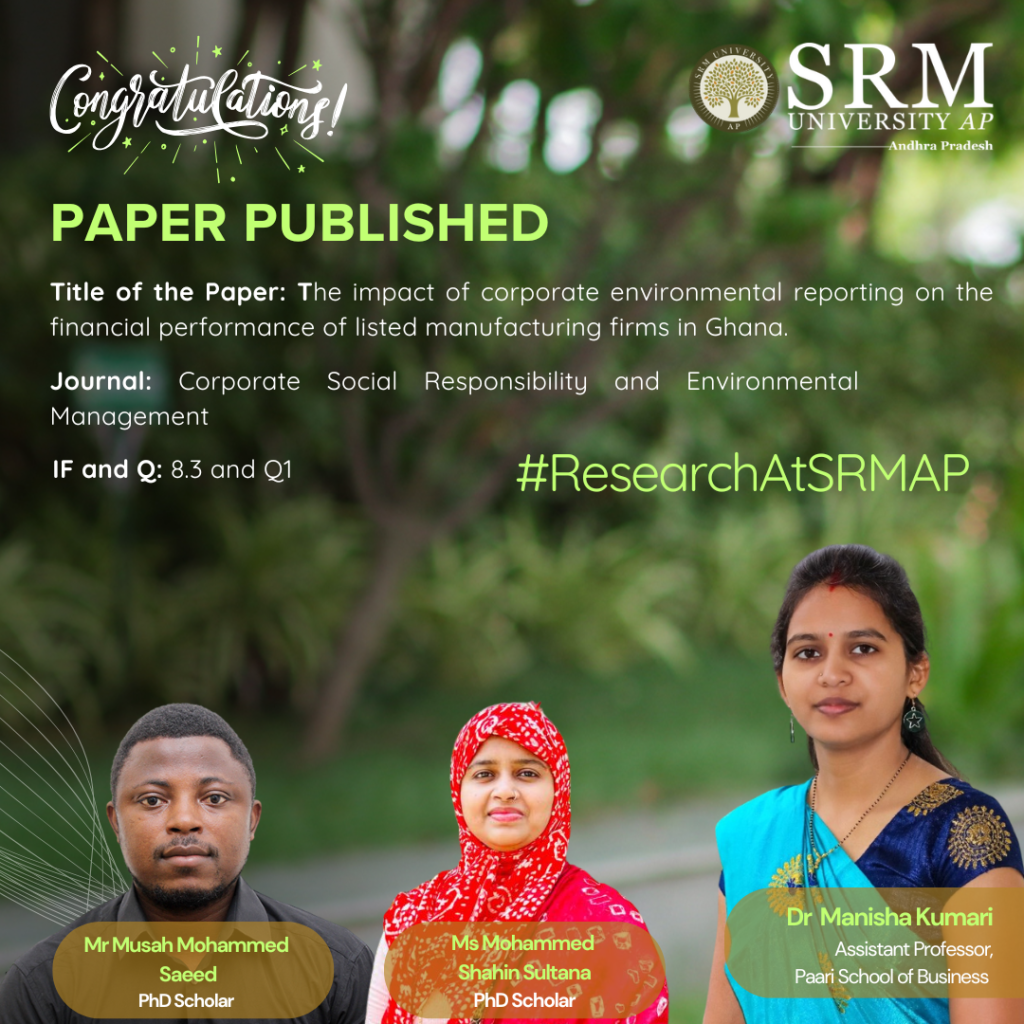
It is pivotal for multinational companies to opt for sustainable growth while expanding their domains. In this regard, Dr Manisha Kumari, Assistant Professor from the Department of Management, Paari School of Business, has published her paper titled “The Impact of Corporate Environmental Reporting on the Financial Performance of Listed Manufacturing in Ghana” along with her research scholars Mr Musah Mohammed Saeed and Ms Mohammed Shahin Sultana in the Q1 journal Corporate Social Responsibility and Environmental Management with the impact factor 8.3.
Abstract
A growing number of businesses are facing criticism for engaging in environmentally damaging practices. Despite advancements in technology and operational efficiency, the environmental challenges confronting businesses have become increasingly urgent. As disclosure requirements have expanded, the importance of reporting standards for environmental sustainability has risen. This study explores the impact of corporate environmental reporting on the financial performance of listed manufacturing firms in Ghana. It analyses ten years (2012-2021) of annual reports from 20 publicly traded manufacturing companies, using panel regression and content analysis to assess the data. The findings reveal that environmental sustainability disclosure (ENVD) has a positive and significant effect on return on equity (ROE) and net profit margin (NPM). Furthermore, disclosures related to health, safety, and community development initiatives have a strong positive impact on ROE. The study recommends that policymakers develop guidelines, especially for environmental reporting, to aid firms in preparing their annual reports. It also suggests that corporate accountants expand their expertise and collaborate with environmental and ecological experts. This research offers valuable insights for policymakers and provides a foundation for further investigation into the effects of corporate environmental reporting (CER) on the performance of listed firms in sub-Saharan Africa.
Explanation of the Research in Layperson’s Terms
In simple terms, this study looks at how companies are being criticised for harming the environment, even though they have access to better technology and more efficient ways of working. Environmental problems for businesses are getting more serious, and as governments and organisations require companies to share more information about how they affect the environment, the standards for reporting this information have become more important.
The research focuses on how reporting environmental activities affects the financial success of manufacturing companies in Ghana. It examines reports from 20 publicly traded companies over ten years (2012-2021). The analysis shows that companies that disclose their environmental efforts, such as how they manage health, safety, and community projects, tend to have better financial outcomes, particularly in terms of the profit they return to shareholders and how much profit they make overall.
The study recommends that governments create clear guidelines for environmental reporting to help companies include this information in their annual reports. It also suggests that accountants should work more closely with environmental experts to improve their knowledge. The research provides important information for policymakers and encourages further exploration into how reporting on environmental activities affects company performance in Africa.
Practical Implementation/Social Implications of the Research
The study shows that environmental sustainability disclosures (ENVD) positively impact net profit margin (NPM) and return on equity (ROE) but have minimal effect on return on assets (ROA). This emphasises the need for stricter regulations to ensure comprehensive sustainability reporting, with policymakers incentivising better practices to boost financial performance.
- Energy disclosure (END) positively affects NPM, ROA, and ROE, suggesting mandatory energy-efficiency reporting. Regulators should set standardised metrics and offer tax incentives to encourage energy-efficient technologies.
- Mandatory environmental reporting by companies can help achieve environmental goals, gain importance in securing trade partnerships, and attract global capital.
- Health and safety disclosures (HSD) improve financial metrics, underscoring the need for stricter workplace safety regulations and rewarding safety-focused companies to enhance both worker safety and financial outcomes.
- Community involvement disclosure (CID), which has a negative but insignificant effect on financial performance, highlights the need for standardised reporting and alignment with core business strategies to show long-term value.
- To boost transparency, integrated reporting should be adopted nationwide, embedding environmental and social disclosures into financial reports to better demonstrate their long-term impact. Strengthening Ghana’s weak regulatory framework and aligning it with international standards (e.g., IFRS S1 and S2) would improve corporate social responsibility (CSR) practices, particularly in community development.
- Fiscal incentives, such as tax breaks, could encourage firms to invest in long-term sustainability projects, such as education and healthcare. Capacity building within firms, including sustainability training, would improve both financial and environmental outcomes.
- Standard method of accounting for environmental reporting can bring consistency in the market. Also, they required a proper set of guidelines that can attract environmental investors.
Overall, policy reforms focused on transparency, regulation, and aligning sustainability with financial goals would significantly benefit Ghana’s corporate sector.
Future Research Plans
Dr Manisha plans to shift her focus from traditional accounting standards to the growing field of sustainability reporting. This transition aligns with the increasing global emphasis on environmental, social, and governance (ESG) issues, which have become central to corporate accountability and transparency. Sustainability reporting has been a topic of ongoing discussion, reflecting the need for businesses to disclose not only their financial performance but also their impact on the planet and society.
- Published in Departmental News, News, Paari Current Happenings, Research News
1st Private University in India to Send a Student Expedition to Mt. Everest Base Camp
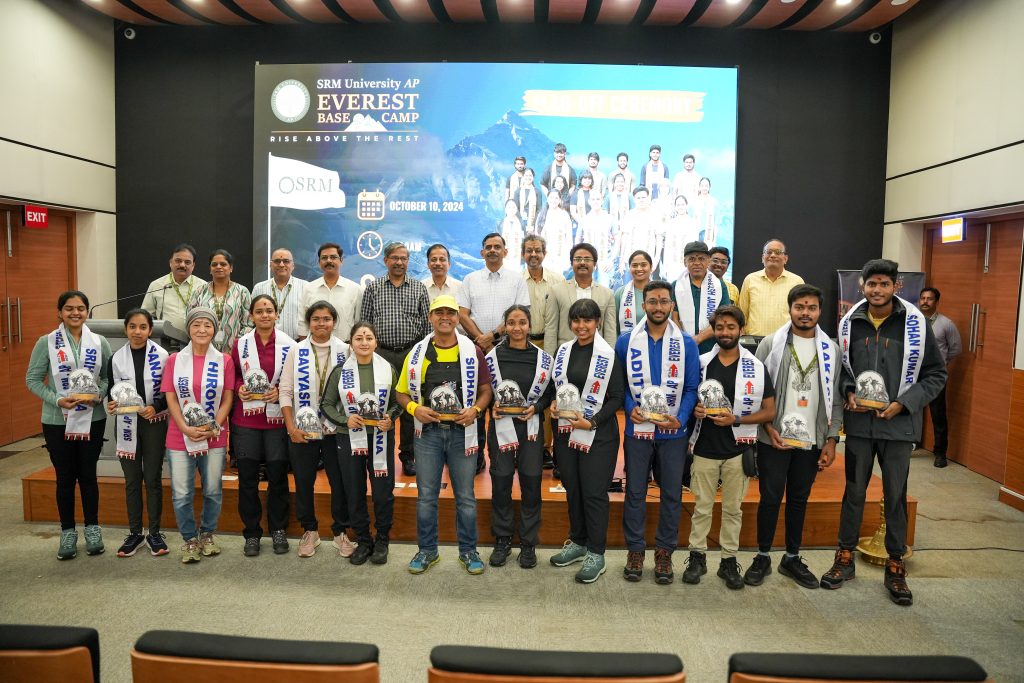
SRM University-AP flagged off the much-awaited Everest Base Camp Expedition that will take place from October 12 – 27, 2024. This is India’s first initiative by any private university in India to send a team of 18 students and faculty under the leadership of Mr Sidharth Tripathy, Director-Entrepreneurship and Innovation, to conquer Mt. Everest Base Camp. The audacious adventure was flagged off by Dr R Premkumar, Registrar, and Prof. Bharadhwaj Sivakumaran, Dean of Paari School of Business, in the presence of Mr Anil Kumar Nigam, Director-Student Affairs, Mr Udayan Bakshi, Associate Director-Entrepreneurship & Innovation, Prof. C V Tomy, Dean-SEAS and the cheering students of the university.
“To enhance the quality of entrepreneurship, it is pivotal to foster a mindset that can take risks, tackle huge challenges and overcome tribulations from a broader perspective. Our motive as a 21st-century university is to cultivate this mindset through this thrilling adventure and to become the harbingers of transformation among students,” remarked the expedition leader, Mr Sidharth Tripathy. The 15-day exhilarating expedition jointly organised by the Directorate of Entrepreneurship & Innovation and the Directorate of Student Affairs will begin from Kathmandu and will reach Everest Base Camp, covering a distance of about 134 km and scaling a height of 17,598 ft.
In his address to the voyagers, Dr R Premkumar wished the group a safe and successful journey and opined, “This is an adventure of a lifetime that will teach you to live as a group, to grow as a team and contribute to each other for a common goal”. In addition to providing students with exemplary academic, research and entrepreneurial resources, SRM University-AP also emphasises the significance of nurturing 21st-century skills through experiential projects and initiatives. The Everest Base Camp expedition is a one-of-a-kind adventure that will ensure that students imbibe the value of belief, the significance of planning, training and camaraderie to develop essential leadership skills.
- Published in Departmental Events, IDEA NEWS, News, student affairs news
Dr Narayanamoorthy’s Review on Pt-based Electrocatalysts Features in Elsevier Journal of IF 20.8
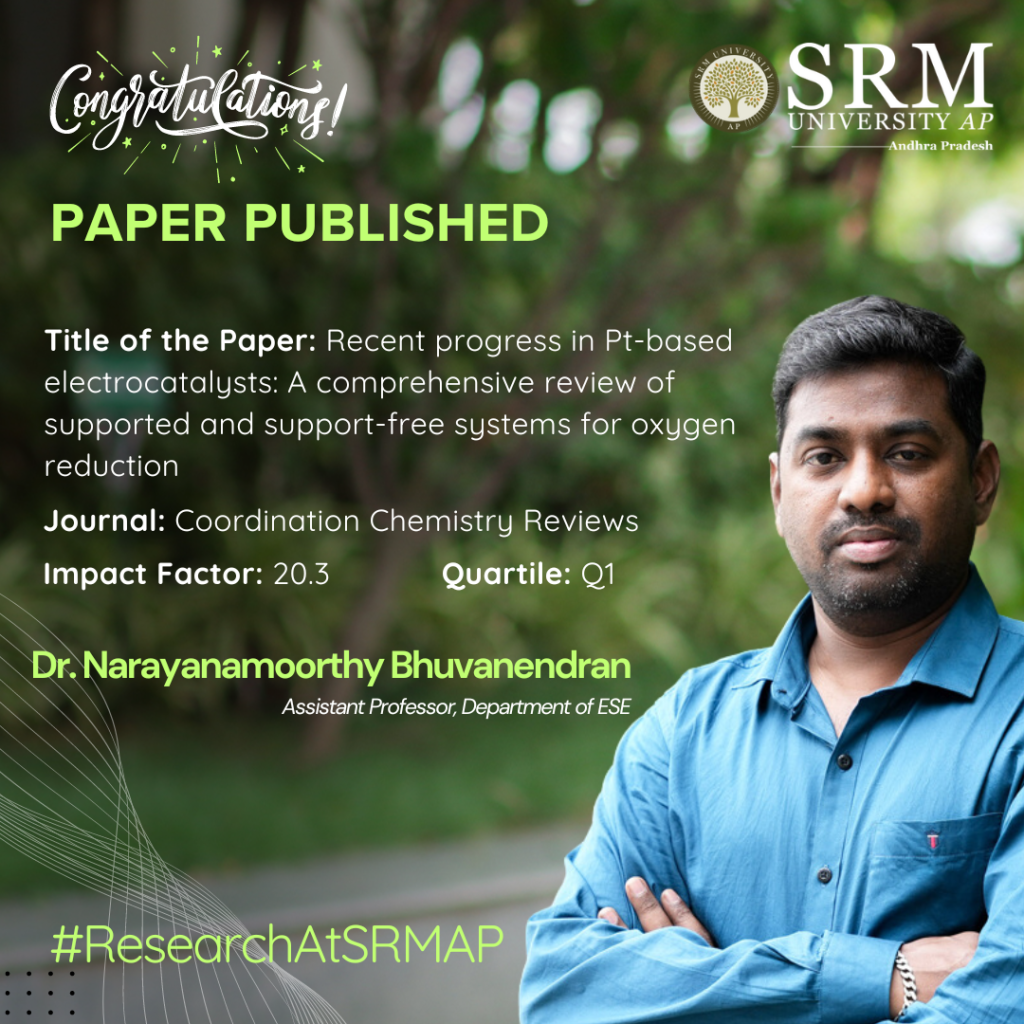
With the rising frequency of climate crises and to address growing energy demands and environmental concerns, a shift from conventional fossil fuels to sustainable alternatives is essential. As Hydrogen fuel cells are a viable and sustainable alternative to conventional fossil fuels, various research is being conducted in maximising the efficiency of fuel cells.
Dr Narayanamoorthy Bhuvanendran, Assistant Professor from the Department of Environmental Science and Engineering, works extensively in this field and has recently reviewed the advancements in Pt-based electrocatalysts that can reduce the Oxygen reduction rate (ORR) in Hydrogen fuel cells in his research paper. The paper titled “Recent progress in Pt-based electrocatalysts: A comprehensive review of supported and support-free systems for oxygen reduction” was published in the Q1 journal Coordination Chemistry Reviews with an impact factor of 20.8.
Abstract
Recent advancements in Pt-based catalysts for the oxygen reduction reaction (ORR) have improved energy conversion efficiency in fuel cells and metal-air batteries. However, balancing electrocatalyst activity and stability remains challenging. Due to Pt’s high cost and limited availability, research focuses on Pt alloys, hybrid catalysts, and nanostructured materials to enhance catalytic performance using cost-effective methods. Hybridising Pt with other active components offers synergistic effects and aligns with the U.S. Department of Energy’s 2025 targets. This review examines recent developments in supported and support-free Pt-based electrocatalysts, highlighting carbon, inorganic, and hybrid support materials, as well as support-free metal nanostructures, for superior ORR performance in energy applications.
Explanation of the Research in Layperson’s Terms
Hydrogen, with its abundance and eco-friendly properties, is a promising fuel for sustainable energy systems, powering vehicles like electric cars and buses through efficient energy conversion devices such as fuel cells. While fuel cells effectively convert hydrogen into electricity, further advancements in electrocatalysts and cost-efficiency are needed to make this technology commercially viable. The oxygen reduction reaction (ORR) in fuel cell cathodes requires efficient catalysts for better performance. Pt is the top ORR catalyst for low-temperature fuel cells due to its ability to break O-O bonds efficiently. However, issues like Pt nanoparticle dissolution, surface impurities, and structural changes during reactions limit its effectiveness. This review explores improving electrocatalysts by increasing active sites, boosting metal-support interaction, and enhancing stability for better performance.
Practical Implementation/ Social Implications of the Research
Several challenges remain in scaling Pt-based electrocatalysts for oxygen reduction reaction (ORR), particularly around cost, performance, and environmental impact. Platinum’s high cost and scarcity drive up production costs, and synthesis methods are complex and hard to scale. Catalyst durability also degrades over time in industrial conditions. Efforts are focused on developing green synthesis methods, recovering platinum from used catalysts, and exploring alternatives like atomic layer deposition to reduce Pt usage while enhancing efficiency. New nanostructures, such as 2D layers and hybrid materials, could balance performance and cost. Future research aims to meet the U.S. Department of Energy’s 2025 targets for improved performance and durability, essential for advancing Pt-based electrocatalysts and enabling widespread fuel cell adoption.
Collaborations
- Prof. Huaneng Su, Institute for Energy Research, Jiangsu University, Zhenjiang, China
- Prof. Sae Youn Lee, Department of Energy and Materials Engineering, Dongguk University, Seoul, Republic of Korea
- Dr Srinivasan Arthanari, Research Professor, Chungnam National University (CNU), Daejeon, Korea
- Dr Sabariswaran Kandasamy, Assistant Professor, Department of Biotechnology, PSGR Krishnammal College for Women, Coimbatore, India
Dr Narayanamoorthy will continue to work in this domain, developing novel nanostructured hybrid electrocatalysts for energy and environmental applications.
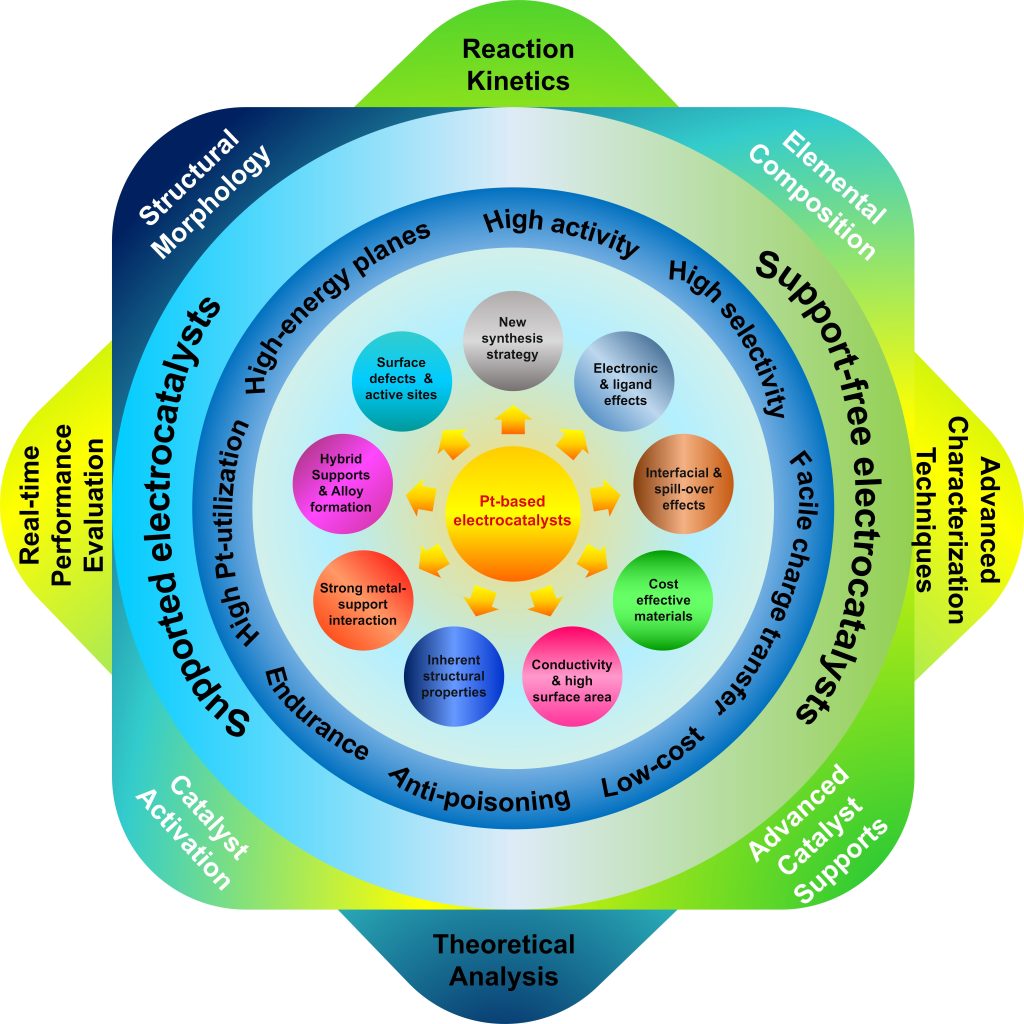
- Published in Departmental News, ENVS News, News, Research News
From Lab to Land: One-Day Workshop Hosted on Road Maintenance & Rehabilitation (M&R)
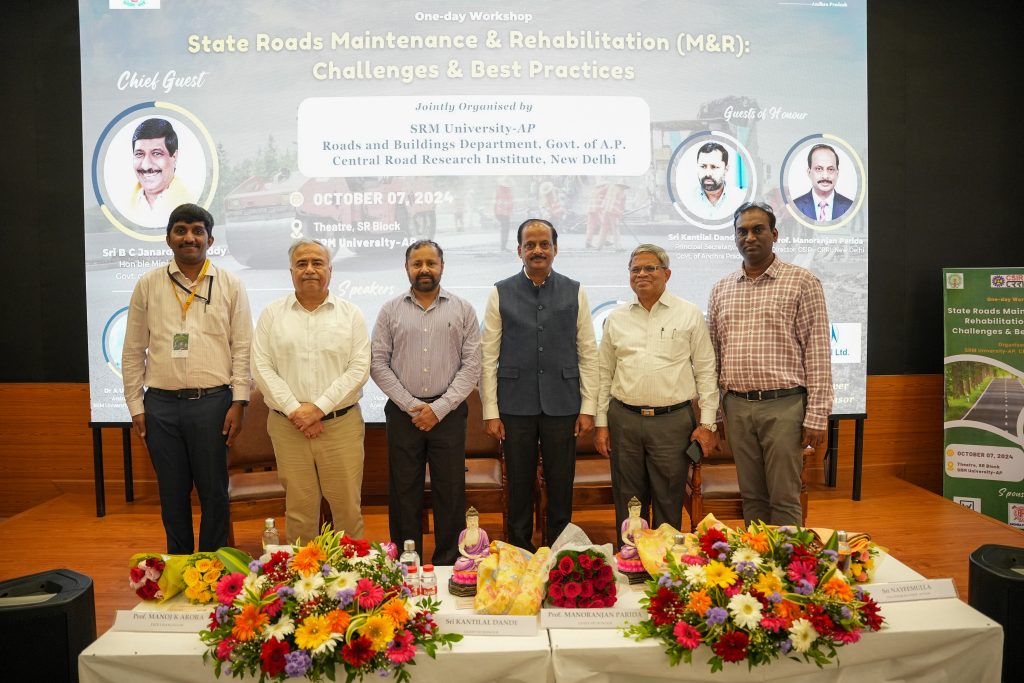
“Road is the index of a developed society” commented Sri Kantilal Dande IAS, Guest of Honour for the one-day workshop.
SRM University-AP, in association with the Andhra Pradesh Roads and Buildings (R&B) department and the Council of Scientific and Industrial Research-Central Road Research Institute (CSIR-CRRI), hosted a one-day workshop on exploring the Challenges and Best Practices for State Roads Maintenance and Rehabilitation (M&R). The ceremonious event welcomed the Honourable Minister of Roads & Buildings (R&B), Government of Andhra Pradesh, Sri B C Janardhan Reddy, as the Chief Guest along with Sri Kantilal Dande IAS, Principal Secretary, (R&B), Government of Andhra Pradesh and Prof. Manoranjan Parida, Director of CSIR-CRRI as the Guests of Honour. Distinguished dignitaries from the Government of Andhra Pradesh, the R&B Department, industries, universities, and research institutes participated in the workshop to address the critical challenges associated with the maintenance and rehabilitation of state roads.
In his virtual address to the participants, Honourable Minister Sri B C Janardhan Reddy explained that the Government had received proposals of Rs. 290 crores to convert 1393 damaged roads, covering 7071 kilometres, into pothole-free roads across the state. He said that with the latest technology and technical support from SRM University-AP, a complete restoration of the road network would be possible.
The event facilitated a constructive platform that assembled policymakers, academicians, researchers and young minds from various sectors to discuss the pressing challenges faced in the maintenance and rehabilitation of roads and exploring cost-effective and sustainable methods to achieve the same. “To tackle the key factors leading to road damage and rehabilitation, we require technical support and cutting-edge research from reputed institutes like CSIR-CRRI and new-age universities like SRM University-AP”, stated Guest of Honour Sri Kantilal Dande IAS.
Prof. Manoranjan Parida, Director of CSIR-CRRI, delivered a keynote session elucidating the immense significance of technology on road development. “A methodical approach to Road Asset Management is pivotal to ensure successful road maintenance and rehabilitation in the state of Andhra Pradesh. Sustainable technologies such as recycling technology can be utilised for rehabilitation projects, which will be cost-effective and economical”, advised Prof. Parida.
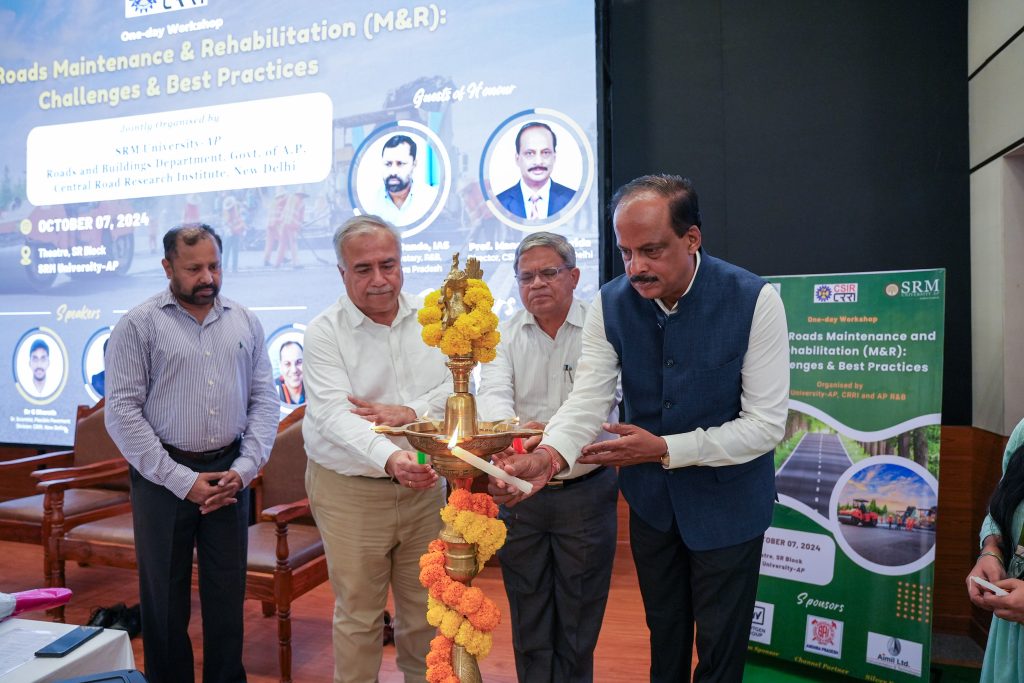
The workshop also encompassed insightful sessions on leading issues featuring esteemed speakers including Mr Nayeemulla, Engineer-in-Chief, R&B Department, Government of AP; Dr G Bharath, Sr. Scientist, Flexible Pavement Division, CRRI, New Delhi; Dr P S Prasad, Chief Scientist, Geotechnical Engg. Division, CRRI; and many more. A panel discussion on the way forward for AP State Roads M&R moderated by Mr Sitaramanjaneyulu, Visiting Professor of SRM University-AP & Former Chief Scientist, CRRI, was a highlight of the workshop.
Vice Chancellor of SRM University-AP, Prof. Manoj K Arora, praised the assemblage of government, industry, academia, research and the builders’ association at the workshop for a consulted approach towards the development of state roads. Dr Uma Maheswar, the organising secretary from SRM University-AP, stated that “Maintenance and rehabilitation of roads are key for any kind of success and development. In the next 5 to 10 years, SRM University-AP, the Government of AP and the industry will foster an ecosystem to rehabilitate the damaged roads through sustainable methods.”
The one-day workshop was a grand success in identifying a roadmap for sustainable programs tailored for AP state roads and formatting potential solutions for the challenges. The event also witnessed the presence of Mr Venkateswara Rao, Former President of the Builders’ Association of India AP Chapter, Mr Nagamalleswara Rao, President of Builders’ Association of India AP Chapter, Dr R Premkumar, Registrar of SRM University-AP, Dr Raviteja KVNS, HOD, Department of Civil Engineering, SRM University-AP, participants from neighbouring universities, industry professionals and faculty and students of SRM University-AP.
- Published in CIVIL NEWS, Departmental News, News
A Sustainable Greywater Treatment Method
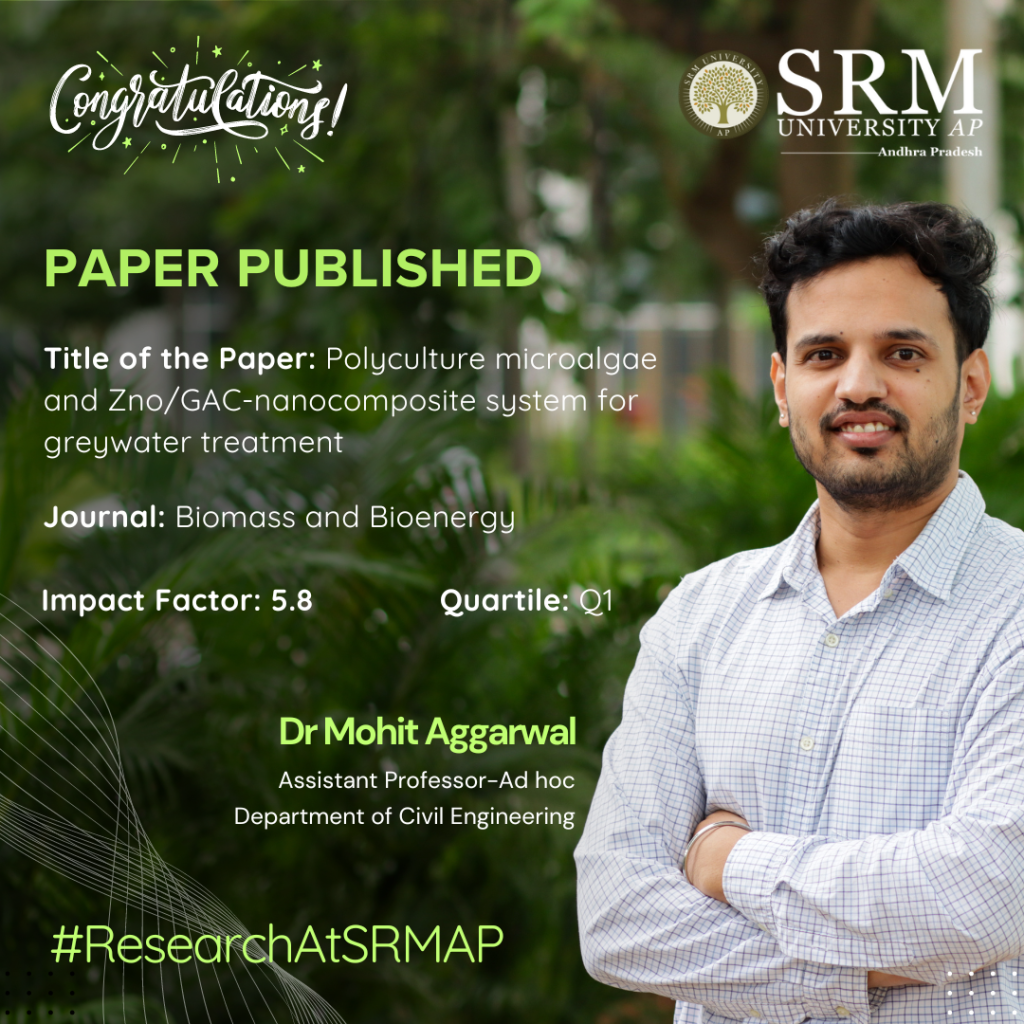
Addressing the ever-demanding crisis of water scarcity, Dr Mohit Aggarwal, Assistant Professor from the Department of Civil Engineering, has published a paper titled “Polyculture Microalgae and Zno/GAC-nanocomposite System for Greywater Treatment” in the Q1 journal Biomass and Bioenergy with an impact factor of 5.8. In his research, Dr Aggarwal explores sustainable methods to treat wastewater with algae and nanoparticles, providing an efficient method to reuse greywater and reduce water consumption.
Abstract
This study explores sustainable greywater treatment using microalgae and a ZnO/GAC nanocomposite in a 15-day batch photobioreactor. The system achieved significant nutrient removal, with 80% TOC, 94.2% PO43−, and 99.6% NH4+ efficiencies. Microalgal growth was enhanced by the nanocomposite, reaching a density of 1.8 g/L. The resulting biomass had a high heating value of 18.32 MJ/kg. The ZnO/GAC nanocomposite maintained effective removal over four cycles. The treated greywater met reuse standards for toilet flushing, with pH 8.5, turbidity <4 NTU, and COD, NH4+, and PO43− of 34, 0.032, and 0.48 mg/L, respectively.
Explanation of the research in layperson’s terms
Water scarcity and pollution are serious problems, and our research aims to find an environmentally friendly way to treat greywater (wastewater from sinks, showers, etc.). We explored the use of algae combined with special nanoparticles (zinc oxide) to clean the water more effectively. The algae grow in the water and help remove harmful substances like carbon, phosphorus, and nitrogen. The nanoparticles make this process even more efficient.
After treatment, the water is clean enough to be reused, for example, in toilet flushing. This method not only helps clean wastewater but also provides a sustainable way to reuse it, which can reduce water consumption and help the environment.
Practical implementation/ Social implications of the research
Practical implementation
The system developed in this research can be implemented in decentralised greywater treatment units, especially in water-scarce areas. It provides a cost-effective, eco-friendly solution for treating household or industrial greywater. The treated water meets the quality standards for reuse in applications like toilet flushing or landscape irrigation, reducing freshwater demand.
Social implications
This research promotes water recycling, contributing to sustainable water management practices and helping to address water scarcity issues. This can improve access to water in communities with limited resources, reduce the pressure on freshwater supplies, and lower the environmental impact of wastewater discharge, leading to healthier ecosystems and communities. Additionally, adopting such systems on a larger scale can foster greater awareness of water conservation and responsible resource usage.
- Published in CIVIL NEWS, Departmental News, News, Research News


